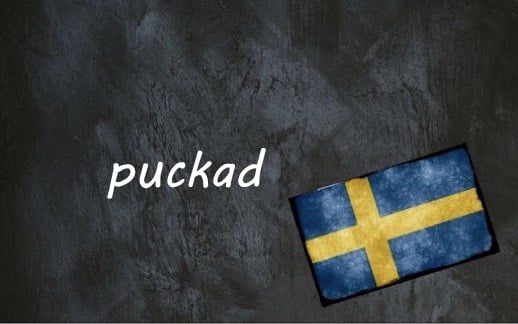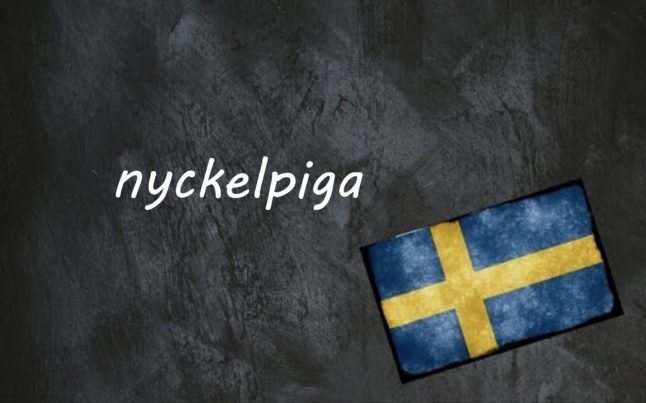And it might have a connection to a chocolate drink you can find in many Swedish supermarkets.
Puckad is simply one among many Swedish words meaning ‘stupid’, with a few notable examples being nöt (meaning ‘nut’ or ‘bovine’), dumbom (meaning ‘dumb’ + a ‘miss’ or a ‘barrier’), pantad (meaning ‘pawned’), and blåst (meaning ‘tricked’ or ‘fooled’).
There is puckad and there is pucko, both meaning the same thing: stupid. Pucko both sounds the same and is spelled the same as a famous Swedish chocolate drink – but the drink is much older. We will get to that further on down.
As is often the case with colourful words, some can simply not stand them, and find them useless. But derogatory terms, curse words, or the like, can often tell you a thing or two about the local culture.
Very often you find that the local curse words are connected to what is sacred, or to some point of pride, and sometimes simply to a local curiosity that you will only know about if you are truly ‘in the know’ of the culture.
Puckad might be all or none of those, but it might be worth having a look at the supermarket next time you are there to see if you can find a Pucko, the beloved chocolate drink.
As you might have suspected, the origins of puckad are shrouded in mystery.
The site Svenska.se, which gathers three major Swedish dictionaries and is highly recommended, can trace the word in its current use as far back as 1977.
The insult pucko, thought to be derived from puckad, which is spelled and pronounced the same as the famous Swedish chocolate drink Pucko, is probably not connected to the chocolate drink at all. Pucko, used as an insult first appears in 1987.
This, of course, does not mean that the word is not older, only that we have no evidence for it.
The chocolate drink Pucko was created in 1953 by Mjölkcentralen, which (to give you über-Swedish trivia knowledge) was the predecessor to the Swedish-Danish dairy giant Arla Foods. The drink’s name was derived from an ice cream called Choklad-puck (chocolate puck), which Mjölkcentralen had at the time. So it seems that the drink might ultimately refer to an ice hockey puck, which will become relevant further down. Incidentally, Arla is now the largest dairy producer in the United Kingdom (the UK, it seems, just cannot get enough of all things Scandi).
Alas, the root of puckad does not seem to stem from the beloved chocolate drink, so let us instead briefly present the most popular theory for the origin of puckad.
If you ask a Swedish person to speculate about the origins of puckad, you are probably more likely to get the ‘Ice hockey hypothesis’.
Here is the theory in brief: an ice hockey puck to the head could cause brain damage, and therefore someone could become puckad.
In the dark corners of the Swedish interweb, which is rife with speculation as to the origins of the word, one user even attributes a quote to Stockholm University linguist Mikael Parkvall.
According to the quote, Parkvall finds the connection to ice hockey plausible, although lacking in evidence.
The reasons he finds it plausible are two-fold. One, the word pucko also exists, and the adding of -o to slang words is common in Swedish, and two, “[Someone] who has been hit hard in the head by [a puck] could suffer impaired intellectual ability.
And there you go.
Try, if you can, to avoid calling others puckad. But you can certainly use the word to refer to yourself, or something you have done as puckat. Here are a few examples.
Example sentences:
Jag glömde hänga upp tvätten, gud va puckat.
I forgot to hang the laundry out to dry, god, how stupid.
Hur kunde jag va så puckad?
How could I have been that stupid?
Villa, Volvo, Vovve: The Local’s Word Guide to Swedish Life, written by The Local’s journalists, is now available to order. Head to lysforlag.com/vvv to read more about it. It is also possible to buy your copy from Amazon US, Amazon UK, Bokus or Adlibris.



 Please whitelist us to continue reading.
Please whitelist us to continue reading.
Member comments